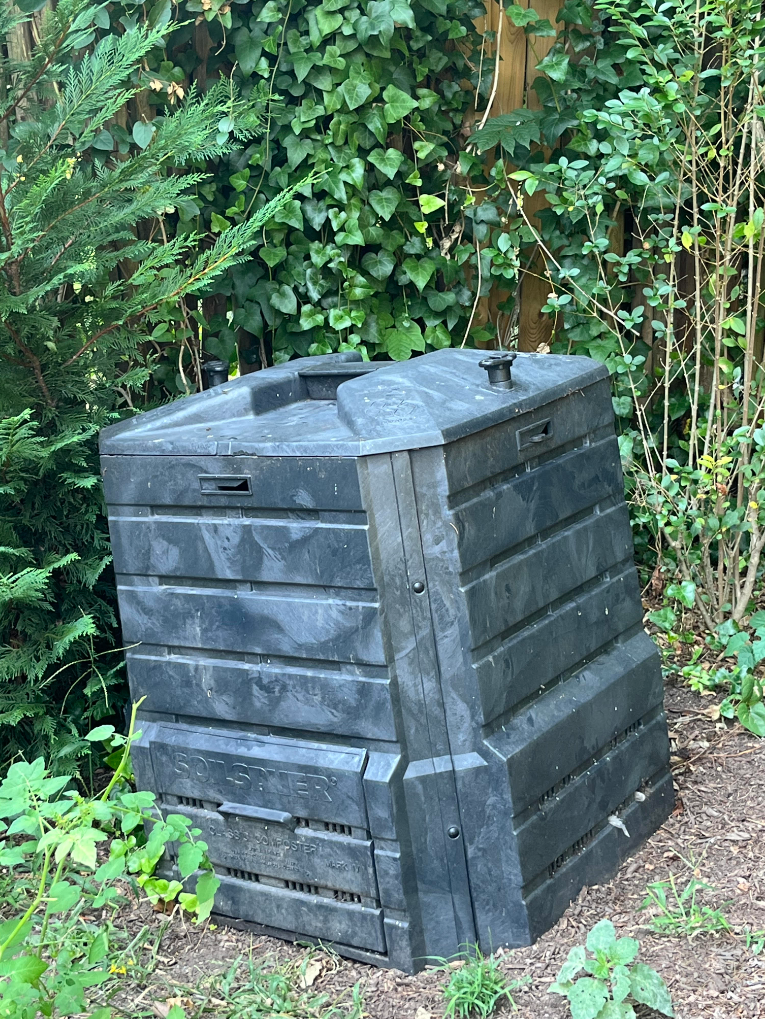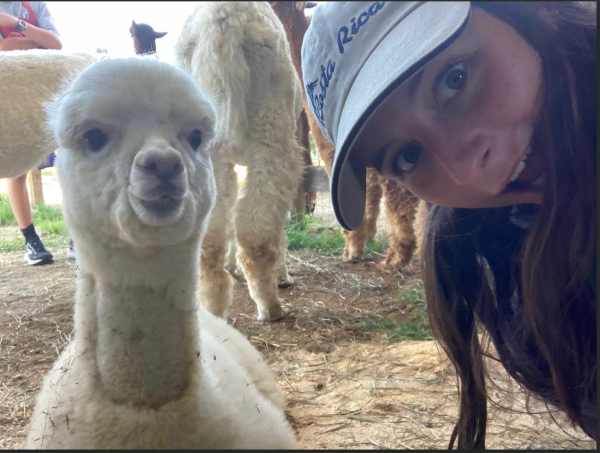With the new 2023-2024 school year, The Archmere Kitchen Staff are adding a new compost bin. Compost bins divert wasted food from landfills to be used for helping plants grow. This is very helpful for the environment since food waste accounts for 24% of landfills and 8% of Greenhouse gas emissions. A compost bin works by holding organic materials that naturally decompose in the bin. The decomposed materials like grass clippings or food scraps become compost that benefits plants. Compost bins come in many shapes, sizes, and price points depending if it is indoor or outdoor. They’re most commonly shaped like barrels, which you can deposit your food scraps or leaves into. Time for composting to finish varies depending on many factors. For example, the amount of compost or temperature in the bin.
Anna Benner ‘24, club leader for Auks For Earth, had the idea for a compost bin on Archmere’s campus. The compost bin is going to be used by Archmere’s kitchen staff to dispose of food waste from the kitchen. Benner plans for the compost created from the bin to be used on the plants around campus or even a garden managed by students can use the compost. Benner says she got the idea from thinking of little things we can do as a community to help the environment. Benner also introduced this idea of a food waste collection program to her local community Swarthmore. She used the Media, Pennsylvania program of collecting food waste door to door as a guide for advocating for a program in Swarthmore. WWF, Food & Agriculture Organization states that “40% Percentage of food produced globally that is lost or wasted” making food waste a huge issue because millions of people are hungry across the world, and yet we just dump food into landfills. Benner is passionate about this project since it is not just an environmental issue but an ethical one as well.
To get the compost bin, Benner contacted a local company that specializes in making benches out of recycled plastics. She asked them if they could make a compost bin out of recycled plastic, and they agreed. Though the compost bin is only large enough for the kitchen staff, Benner hopes that eventually Archmere can have bigger compost bins for the whole school. This is tricky, though, since only certain foods can be composted, and there has to be a certain ratio of certain foods in the compost. However, this is a good start for the Archmere community to limit the amount of food waste we are producing. If you are excited by this addition, look out for future environmental initiatives from AUKS for Earth.
If you are interested in starting a compost bin there are a few factors to consider. First, decide either to do “hot composting” or “cold composting”. Hot composting is faster, but you need to track the amount of nitrogen in your compost so it heats up causing the organic matter to decompose faster. This process can take a few weeks to months for the compost to be ready. Cold composting is less effort since you wait for the natural decomposition, and all you have to do is dump the right food scraps and other organic materials into the bin (see infographic for what can be put into a compost bin). This process can take up to one to two years to result in usable compost. You also need to know the size of the compost bin depending if you want it to be inside or outside. Outside bins tend to be bigger and can be as low as $40. Indoor bins are commonly small enough to be set on your kitchen countertop and are useful if you do not have a backyard. If you do not want to buy a compost bin, you can even make one yourself with spare wood or out of a barrel that you don’t use.
Composting is an easy and small way for you to limit food waste while helping the environment. If everyone does little things like composting, it can better the world’s environment in many ways, like stopping food waste from entering landfills but also creating healthy nutrients for your plants. The agricultural industry itself uses “66 trillion gallons of water producing food that is wasted or lost. Though composting won’t solve the issue of wasting water, it’s good to acknowledge these issues. I ask that you do your own research and look into adding a compost bin in your life. If you want to support the cause further, consider donating extra food and using this map you can find a local food bank.

















